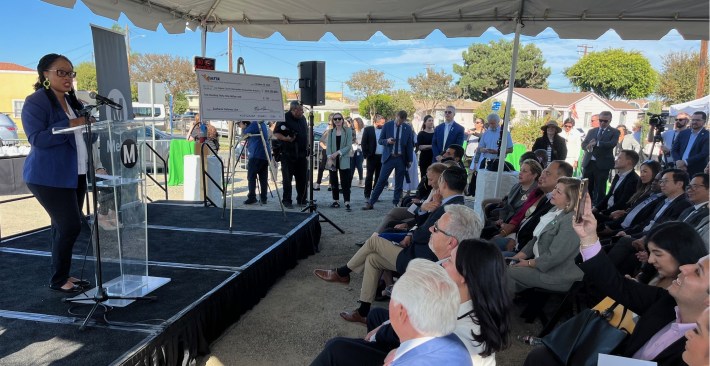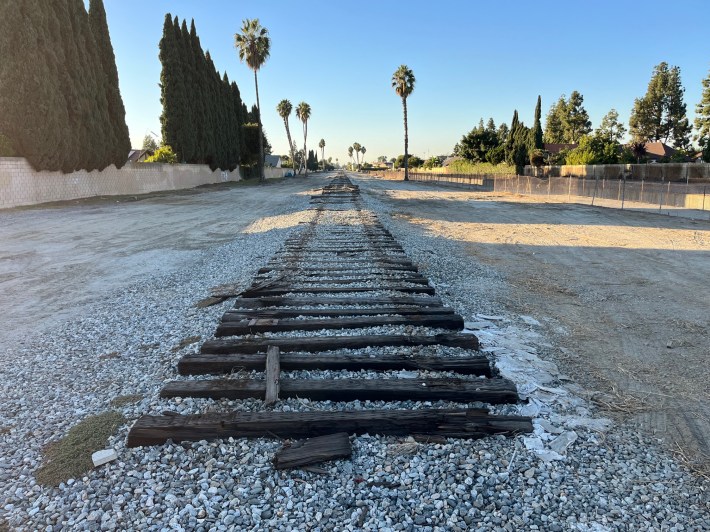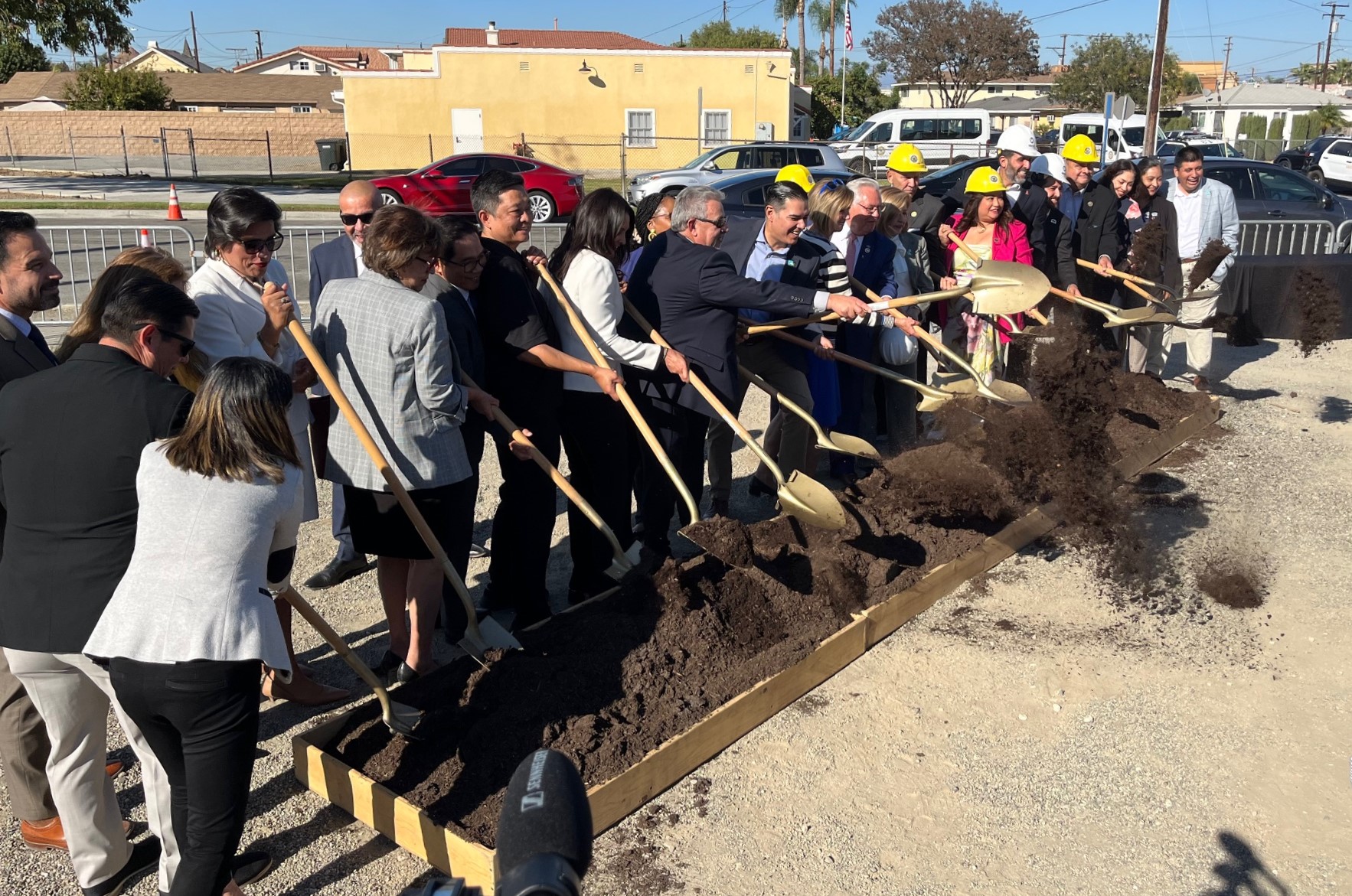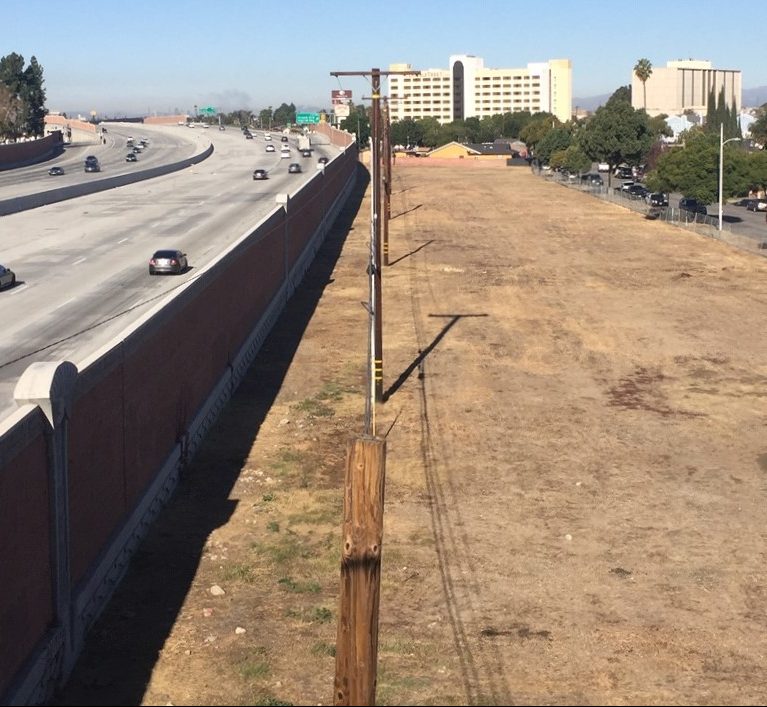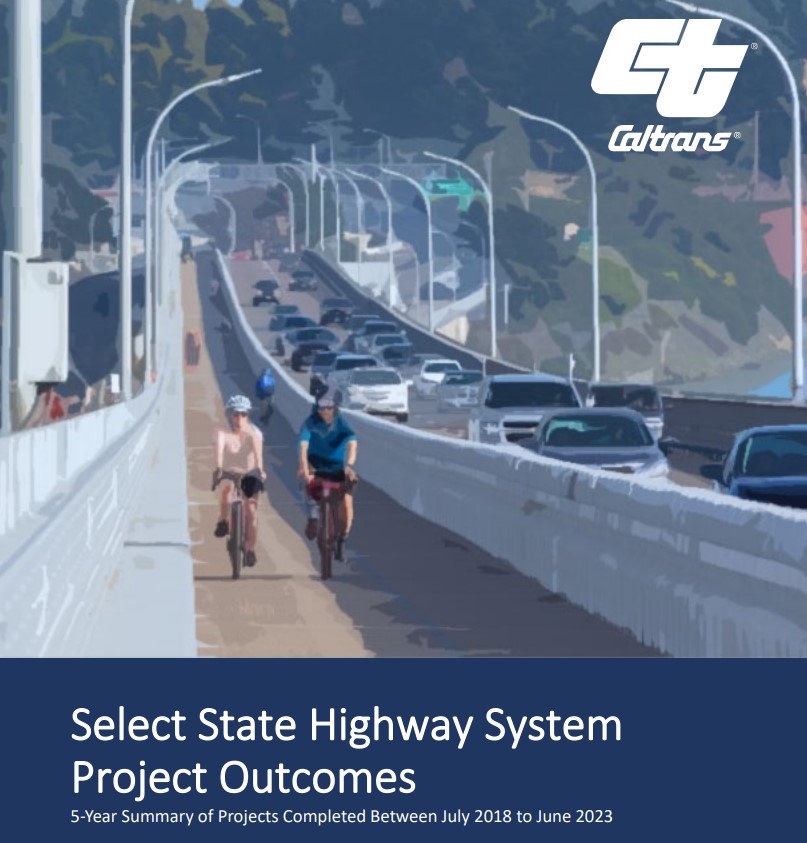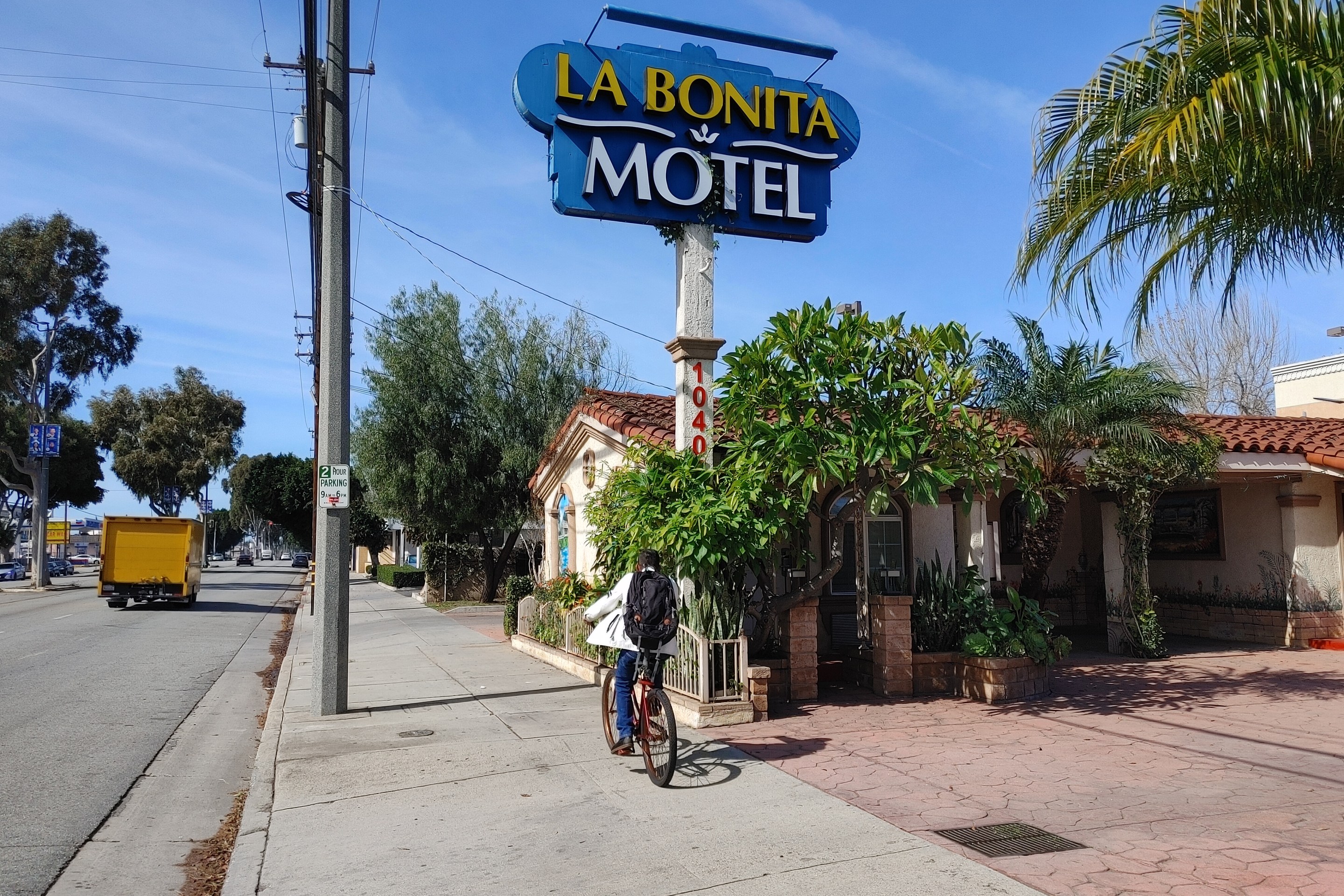"We are not just shovel-ready, we are putting those shovels in the ground!" County Supervisor and Metro Board Chair Janice Hahn proclaimed at yesterday's groundbreaking celebration for Metro's Southeast Gateway light rail line. The line, which will serve southeast L.A. County, is not yet fully funded, so the groundbreaking was for the key pre-construction phase of advance utility relocation.
The ceremony took place at the site of the city of Artesia's future Pioneer Boulevard Station, now a vacant rail right-of-way.
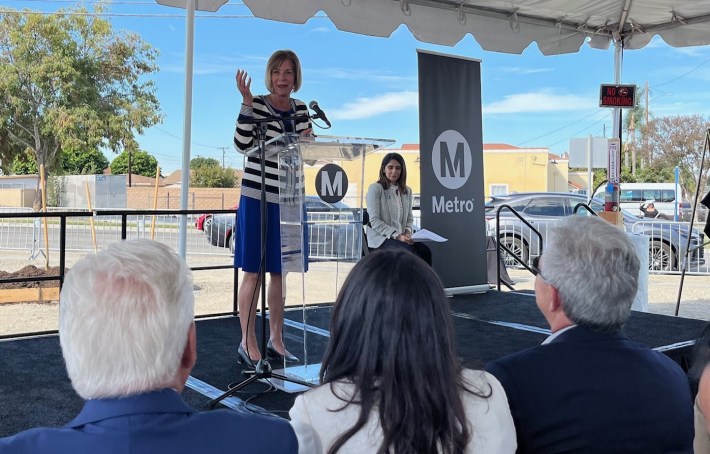
"Expansion of our Metro system... is finally coming to Southeast L.A. and the Gateway Cities," Hahn stressed. “This region has been left behind on so many levels... while other places in L.A. County get those shiny new trains... We will finally make good on the promise we made to Southeast L.A. that you too will have a fantastic public transportation system.”
Metro's Southeast Gateway Line is planned to run 19 miles, from the city of Artesia to downtown Los Angeles Union Station.
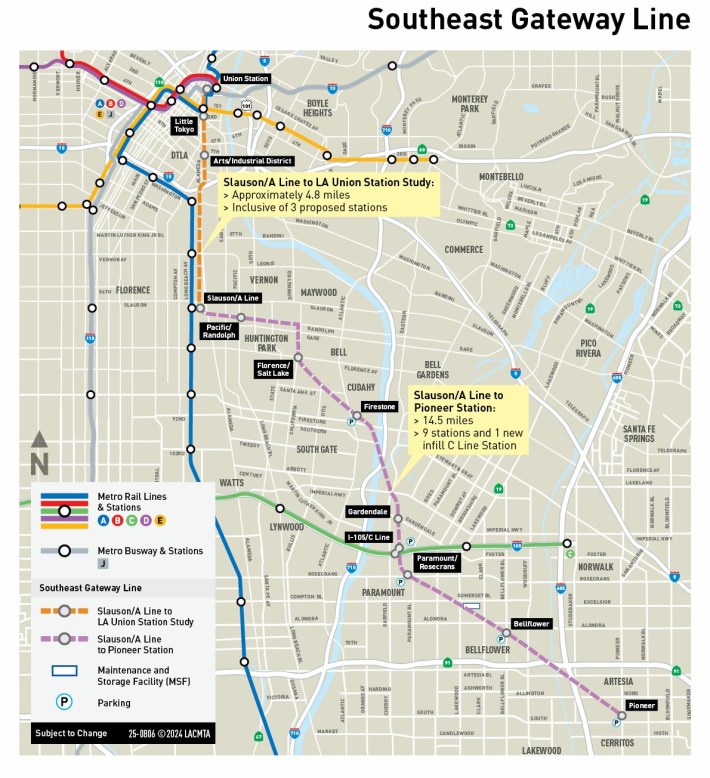
When construction costs rose, Metro approved building the lower end of the line first, saving the connection to downtown L.A. for later. The initial segment will extend from Artesia to the South L.A. community of Florence, with connections to the Metro A and C Lines. That initial 14.5-mile phase is expected to cost $7.1 billion.
The line's final environmental studies were approved this past April. In August, the Federal Transit Administration made the project eligible for significant - and much needed - federal funding. The project already has about $3.5 billion in funding (mainly Metro sales tax revenue) and was awarded a $261 million CA transit capital grant last week. But a sizable gap remains.
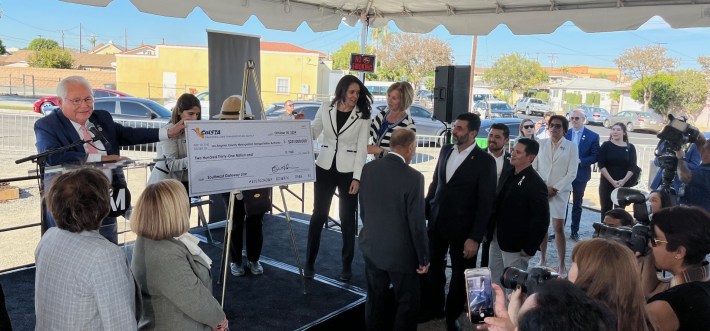
"I understand very clearly that this project will not get built without significant federal support," U.S. Representative Robert Garcia emphasized. He then pledged, "We're going to get that money. We're going to get past this election - regardless of the outcome - and fight like hell to get every single dollar that this project deserves."
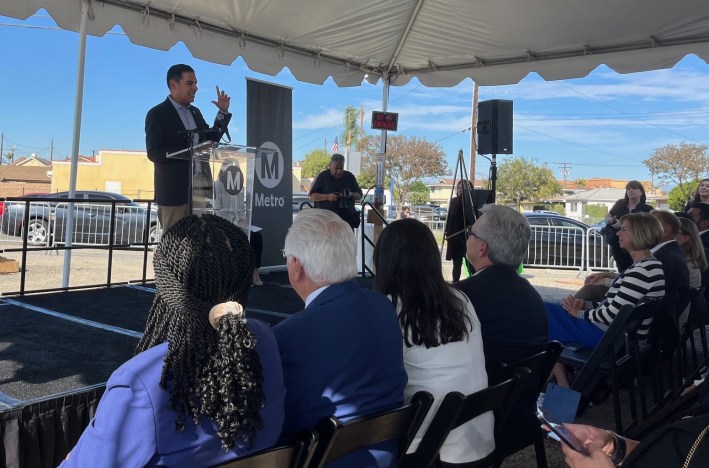
Metro CEO Stephanie Wiggins noted the importance of utility relocation in reducing delays and containing costs, and also pledged to work with Representative Garcia to secure federal funds. Wiggins expressed her appreciation for the partner cities, agencies, utilities, and Metro staff that spent decades getting the Southeast Gateway Line, "the most deserving project, the biggest priority we have at Metro," to where it is today.
